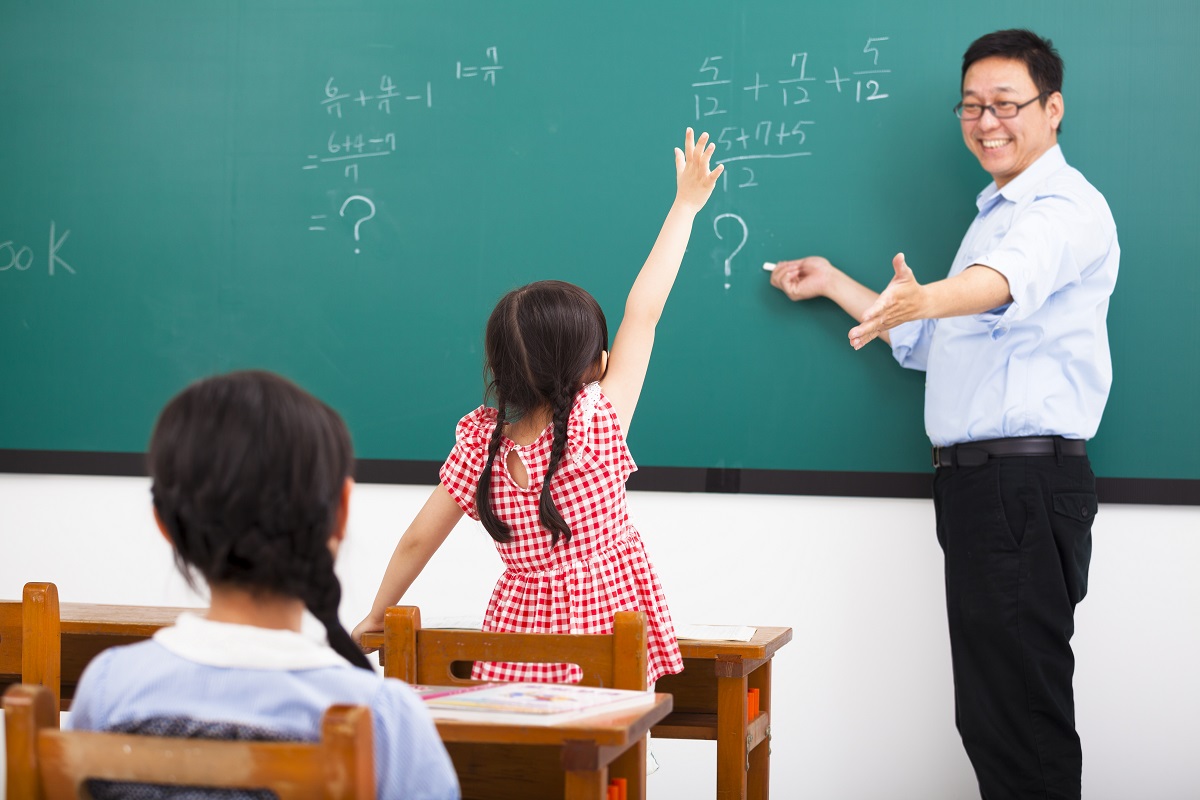Primary Science Tuition Singapore for Building Confidence in Science
Primary Science Tuition Singapore for Building Confidence in Science
Blog Article
Exploring the Different Training Strategies in Primary Science Education And Learning Today
Inquiry-based knowing, hands-on experiments, and the integration of modern technology are redefining exactly how instructors engage young minds. In addition, collective approaches and separated instruction are being used to provide to the diverse needs of pupils, enhancing both involvement and understanding.
Inquiry-Based Learning
Inquiry-Based Learning (IBL) is an instructional approach that encourages pupils to check out scientific principles with doubting, investigation, and hands-on testing. This approach stresses the duty of trainees as energetic individuals in their learning, advertising vital reasoning and problem-solving skills. By engaging with real-world questions, pupils come to be curious and motivated, which boosts their understanding of scientific principles.
In IBL, teachers serve as facilitators, assisting pupils as they browse their inquiries instead of delivering info directly. This student-centered strategy allows for differentiation, accommodating various learning styles and speeds. Pupils develop abilities in creating theories, creating experiments, and analyzing information, which are important for scientific proficiency.
In addition, IBL promotes cooperation amongst trainees, encouraging them to share concepts and findings. This collective questions promotes social abilities and a feeling of community within the classroom. The process of questions urges resilience, as pupils discover to embrace failing as a tipping stone toward understanding.
Hands-On Experiments
Hands-on experiments are a vital part of reliable science education, matching the principles of inquiry-based knowing. These experiments permit trainees to engage straight with scientific concepts, cultivating a deeper understanding via experiential understanding. By controling products and observing results, young learners can realize abstract theories in substantial ways.
Such activities promote critical reasoning and analytic abilities, as pupils hypothesize results, conduct experiments, and analyze outcomes. This process urges them to ask questions, fine-tune their understanding, and create a clinical mindset. Moreover, hands-on experiments can be tailored to varied knowing designs, guaranteeing that all trainees have the opportunity to engage meaningfully with the web content.
Furthermore, hands-on experiments commonly urge collaboration amongst peers, advertising synergy and interaction skills. Working in groups allows students to share concepts, go over searchings for, and pick up from each other, which boosts their total instructional experience.
Including hands-on experiments right into the key scientific research educational program not just enhances the finding out setting yet additionally cultivates a long-lasting rate of interest in science. By actively participating in their education and learning, trainees are most likely to develop an enthusiasm for clinical query that prolongs beyond the class.

Modern Technology Assimilation
Incorporating modern technology right into key science education and learning has actually come to be significantly crucial in promoting pupil involvement and improving discovering end results. Using digital devices, such as interactive simulations, online labs, and instructional software, gives pupils with possibilities to explore scientific principles in cutting-edge methods. These resources assist in a much deeper understanding of complex subjects by permitting students to visualize and adjust variables that would certainly be unwise in a conventional classroom setup.
Additionally, innovation assimilation motivates personalized discovering experiences. Students can advance at their own pace, taking another look at difficult principles via multimedia sources, which cater to various learning designs. This flexibility not only sustains individual growth however also grows a sense of freedom in learners.
In addition, innovation functions as a bridge to real-world science, connecting trainees with existing research study and specialist payments. Accessibility to on the internet data sources and scientific journals widens students' point of views on scientific query and cultivates important assuming skills.
Collaborative Understanding
Collaborative discovering plays an essential role in key science education by promoting synergy and interaction skills among trainees. This strategy encourages learners to function together, share understanding, and take part in problem-solving, which improves their understanding of scientific ideas. By joining team tasks, trainees find out to express their ideas, listen to diverse point of views, and discuss solutions, all of which are crucial abilities in both real-world and scholastic contexts.

Research suggests that collaborative understanding can bring about enhanced inspiration and engagement in scientific research topics, as trainees find enjoyment in common experiences (primary science tuition Singapore). In addition, this approach prepares pupils for future collaborative endeavors, outfitting them with the abilities needed for effective team effort in greater education and learning and expert environments. Ultimately, accepting joint knowing in main science education can dramatically enrich the knowing experience and promote a much deeper understanding of clinical inquiry
Separated Guideline

Set apart instruction can manifest in various ways, such as differing the material, procedures, or items of understanding. Educators might utilize tiered tasks that supply varying levels of intricacy, permitting trainees to work at their respective readiness levels. Furthermore, flexible grouping approaches can facilitate cooperation amongst pupils with various abilities, promoting peer knowing.
Assessment plays a crucial duty in this technique, as it notifies instruction and aids educators recognize each trainee's distinct needs. Developmental assessments, such as monitorings and quizzes, can guide instructors in adjusting their methods to enhance finding out results. primary science tuition Singapore. Inevitably, by carrying out separated guideline in main science education and learning, educators can grow an extra reliable and equitable understanding atmosphere, equipping all students to reach their full possibility in understanding scientific sensations
Conclusion
In recap, the varied teaching techniques in key scientific research education, including inquiry-based understanding, hands-on experiments, technology combination, joint knowing, and differentiated instruction, collectively add to an extra effective discovering setting. These approaches advertise crucial thinking, analytic abilities, and a much deeper understanding of clinical principles. By implementing these methods, teachers can produce encouraging and interesting class that resolve the diverse demands of pupils, ultimately fostering a go to the website lifelong passion in scientific research and boosting academic achievement.
Inquiry-Based Understanding (IBL) is an instructional strategy that encourages trainees to explore scientific principles via wondering about, examination, and hands-on trial and error.Collective discovering plays an important role in key scientific research education and learning by promoting teamwork and interaction abilities among students.Study suggests that collective learning can lead to raised inspiration and interaction in scientific research topics, as trainees locate satisfaction in common experiences.In fostering a comprehensive discovering environment, differentiated direction emerges as a crucial approach to fit the varied needs and capabilities of pupils in main science education. Inevitably, by implementing set apart direction in find this primary science education and learning, teachers can grow a much more reliable and fair knowing setting, empowering all trainees to reach their complete potential in understanding clinical sensations.
Report this page